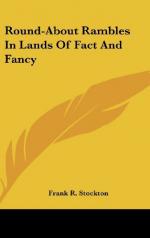Bees have so much sense that we ought almost to beg their pardon when we speak of their instinct. Most of us have read what Huber and others have told us of their plans, inventions, laws, and regular habits. It is astonishing to read of a bee-supervisor, going the round of the cells where the larvae are lying, to see if each of them has enough food. He never stops until he has finished his review, and then he makes another circuit, depositing in each cell just enough food—a little in this one, a great deal in the next, and so on.
There were once some bees who were very much disturbed by a number of great moths who made a practice of coming into their hives and stealing their honey. Do what they could, the bees could not drive these strong creatures out.
But they soon hit upon a plan to save their honey. They blocked up all the doors of the hive with wax, leaving only a little hole, just big enough for one bee to enter at a time. Then the moths were completely dumbfounded, and gave up the honey business in despair.
But the insect to which the epithet of cunning may be best ascribed, is, I think, the flea. If you doubt this, try to catch one. What double backsprings he will turn, what fancy dodges he will execute, and how, at last, you will have to give up the game and acknowledge yourself beaten by this little gymnast!
[Illustration]
But fleas have been taught to perform their tricks of strength and activity in an orderly and highly proper manner. They have been trained to go through military exercises, carrying little sticks for guns; to work and pull about small cannon, although the accounts say nothing about their firing them off; and, what seems the most wonderful of all, two fleas have been harnessed to a little coach while another one sat on the box and drove! The whole of this wonderful exhibition was so small that a microscope had to be used in order to properly observe it.
The last instance of the intelligence of insects which I will give is something almost too wonderful to believe, and yet the statement is made by a Dr. Lincecum, who studied the habits of the insect in question for twelve years, and his investigations were published in the Journal of the Linnaean Society. Dr. Lincecum says, that in Texas there is an ant called by him the Agricultural Ant, which not only lays up stores of grain, but prepares the soil for the crop; plants the seed (of a certain plant called ant-rice); keeps the ground free from weeds; and finally reaps the harvest, and separating the chaff from the grain, packs away the latter, and throws the chaff outside of the plantation. In “Wood’s Bible Animals” you can read a full account of this ant, and I think that after hearing of its exploits, we can believe almost anything that we hear about the intelligence of insects.
A FIRST SIGHT OF THE SEA.
[Illustration]




